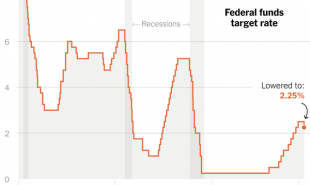
Most Senators Support Trump’s Syria Airstrike
via Perry Bacon Jr. and fivethirtyeight.com
UPDATE (April 7, 6:29 p.m.): We’ve added Sen. Cochran! Seventy-nine senators support the strike in Syria, and all 100 are on the record.
UPDATE (April 7, 6 p.m.): The article below has been updated with positions for 12 senators previously recorded as “no clear public statement.” According to our latest count, only Sen. Thad Cochran of Mississippi has yet to take a position; 78 senators support the strike in Syria (48 Republicans and 30 Democrats).
Yay Death!
--------------------------------------------------------------------------------------------

More than three-fourths of U.S. senators, including more than two dozen Democrats, have said that they support President Trump’s decision to strike an air base in Syria in retaliation for the use of chemical weapons by the regime of Bashar al-Assad. Much of that support came with concern about what comes next, but this is one of the first times in Trump’s presidency that a major policy decision has received more than token support from Senate Democrats.
A tally of senators’ positions1 also illustrated an important partisan divide. Almost every Democrat who backed the military strikes hedged their support. Some argued that Trump should have consulted Congress before this move. Others said that, going forward, the president would need to ask for and receive formal congressional authorization or at least present a detailed Syria strategy to the country before any further military action.
In contrast, the majority of Republicans who issued a statement offered full support for Trump’s move, without such conditions.
NUMBER OF SENATORS' POSITIONS ON INITIAL STRIKES DEMS GOP COMBINED
Strong support= 13233
Support with qualifications about next steps= 291746
No clear position with reservations about next steps= 13215
Oppose= 516
How are senators responding to the Syria strikes?
Kentucky’s Rand Paul is the only Republican who has publicly said he opposes the strikes, arguing that such military action must be approved by Congress first. He called Trump’s decision “unconstitutional.” Another Republican, Utah’s Mike Lee, while not opposing the attack in Syria, also declined to support it, similarly citing the lack of congressional authorization.
Nearly 20 other Republicans, including Tennessee’s Bob Corker and Nebraska’s Ben Sasse, said that Trump needed a more comprehensive plan, greater consultation with Congress, or both.
Just one Democrat, Florida’s Bill Nelson, praised Trump’s decision without equivocation. A few Democrats, including Connecticut’s Chris Murphy and Virginia’s Tim Kaine, outright opposed the strikes. Kaine was more focused on the lack of congressional authorization. Murphy, while saying Congress should have been consulted, argued this was simply a strategic mistake.
“An ill-thought out military action with absolutely no overall strategy for Syria risks dragging us further into a civil war in which we cannot tip the scales,” Murphy said. “And put in the context of U.S. policies that aid the slaughter of civilians in Yemen and deny terrorized Syrians the ability to flee their dystopian existence, a solitary air strike exposes the immoral hypocrisy of this administration’s policy in the Middle East.”
At least 10 Democratic senators2 have released statements that were more vague, not outright opposing or supporting the strikes. This group included some of the party’s leading figures, such as Vermont’s Bernie Sanders and Massachusetts’s Elizabeth Warren.
In a series of tweets, Sanders said, “Syria’s Bashar Assad’s use of chemical weapons against the men, women and children of his country makes him a war criminal.”
But he added, “I’m deeply concerned the strike in Syria could lead the U.S. back into the quagmire of long-term military engagement in the Middle East.”
This mix of views, with lots of positions other than simply opposing or supporting Trump’s actions, illustrate the lack of agreement even within the two parties about what the U.S. should do about Syria. And this was only about a single military strike. If Trump consults Congress on Syria policy, as many members in both parties seem to want, that may leave the president with less, not more, clarity on what he should do.
Full Story HERE
About:The Soren K. Group of writers are currently 5 persons writing collectively. Backgrounds are professional, ranging from Finance to Banking to Real Estate. Topics include politics, markets, and Global Macro situations with a libertarian bent. Some posts are collaborative, some individually written.
Email: Sorenk@marketslant.com
Twitter: @Sorenthek
Read more by Soren K.Group







